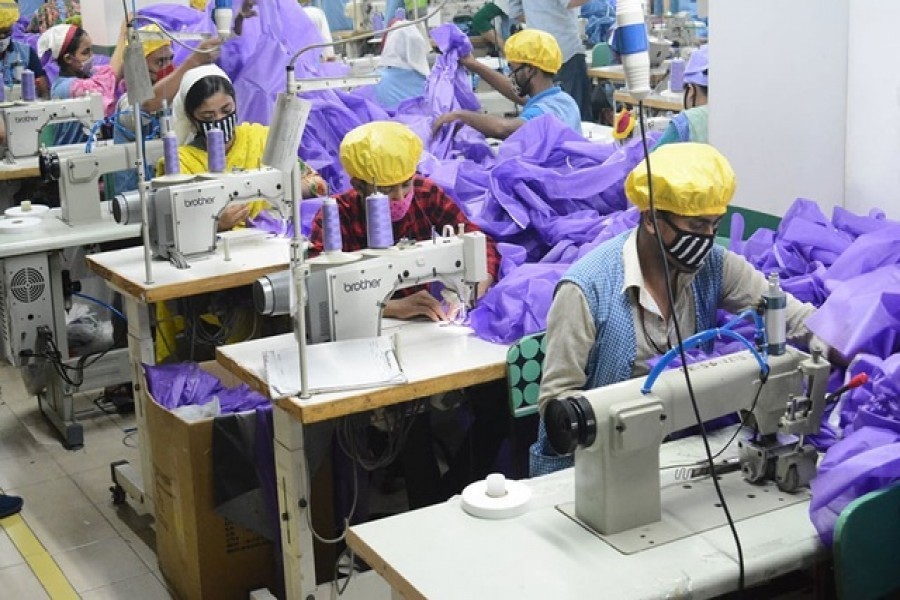The government has moved to strengthen the capacity of the Department of Inspection for Factories and Establishments, in a bid to ensure workplace safety in line with the national action plan on the labour sector.
The move has come as part of the government's commitment to the development partners, including European Union and International Labour Organization (ILO), which repeatedly pressed for recruiting new labour inspectors and ensuring full functionality of labour inspectorate, said officials.
In this connection, the labour ministry on August 04 approved some 162 new posts for the department, while a total of 30 additional posts of labour inspectors were created on Sunday, they added.
The ministry has also given nod to set up eight new inspectorate offices in Gopalganj, Manikganj, Feni, Brahmanbaria, Cox's Bazar, Rangamati, Jamalpur and Naogaon, a ministry official said.
Asked, Nasir Uddin Ahmed, inspector general of the Department of Inspection for Factories and Establishments, said the department currently has 888 posts, including inspectors and other staff, while additional 192 posts had been approved this month.
The factory inspection department, the regulatory authorities to ensure safe and decent workplaces for workers, currently has only 311 inspectors to look after the safety issues in more than 0.53 million factories, including garment units, shops and other establishments.
Poor safety maintenance and a lack of regular monitoring are allegedly responsible for the industrial accidents in the country's readymade garment (RMG) and other non-RMG sectors.
According to the implementation status report of the national action plan on the labour sector, 311 labour inspectors are currently working at the department against total posts of 575 inspectors.
Among the remaining 264 posts, 140 will be appointed by direct recruitment, 112 will be filled up through promotion and the rest 12 will be reserved.
Till March 2022, Bangladesh Public Service Commission recommended appointment of 135 labour inspectors; of them, 57 have already joined and the rest will be joining after completion of necessary administrative procedures like medical checkups and police verification, it noted.
Bangladesh government in October 2019 in the ninth session of EU-Bangladesh Joint Economic Commission agreed to develop a national action plan on the labour sector while the final one was developed in consultation with the EU and shared with the latter on July 01 last year, said labour ministry officials.
The action plan was developed under nine broad areas with a specific focus on legal and administrative reforms as well as enforcement of laws, capacity building and promotional activities.
It is the government's commitment to uphold labour rights and workplace safety in the country, they added.


